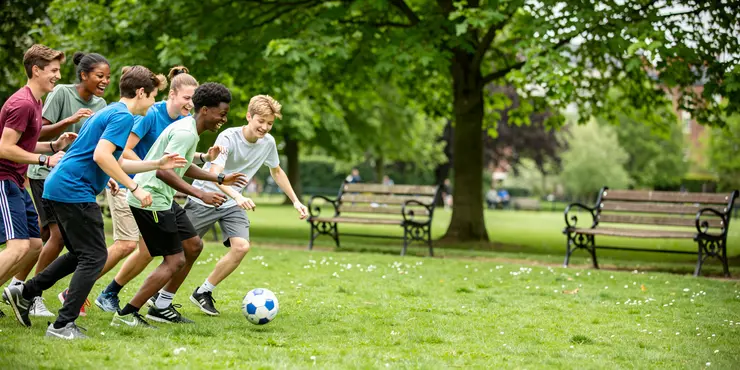
Find Help
More Items From Ergsy search
-
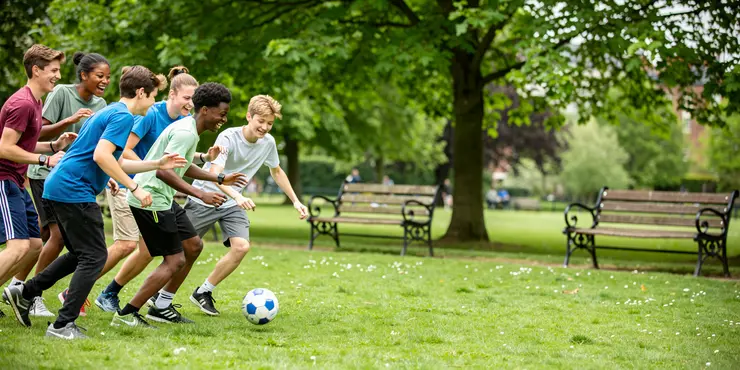
Healthy Habits for Teens
Relevance: 100%
-
Can children and teens have health-related anxiety?
Relevance: 39%
-

Healthy Family Lifestyle Tips Post-Pandemic
Relevance: 28%
-
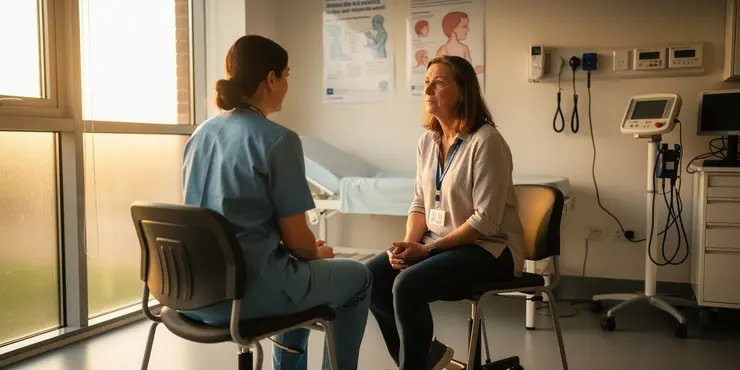
Are UK's Post-Pandemic Work Habits Harming Mental Wellbeing?
Relevance: 28%
-

What are Healthy Start vouchers?
Relevance: 28%
-
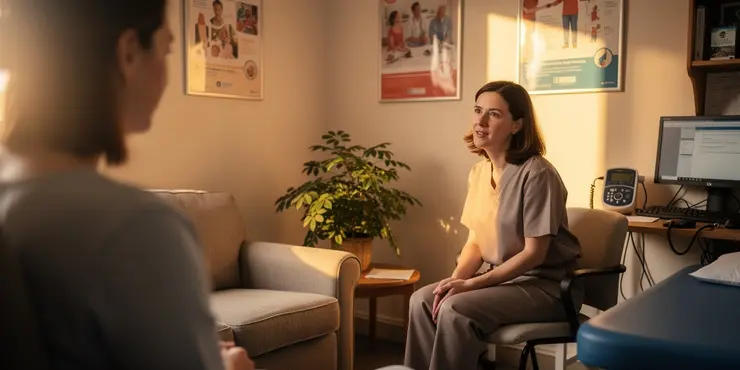
Are UK's Post-Pandemic Work Habits Harming Mental Wellbeing?
Relevance: 28%
-
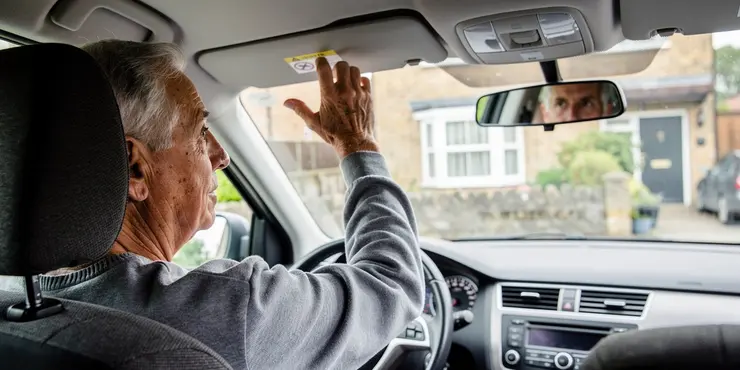
How can technology be used to monitor the driving habits of seniors?
Relevance: 27%
-

Walking to Work: A Simple Habit That Could Transform Your Lifestyle
Relevance: 25%
-

What are Healthy Start vouchers?
Relevance: 25%
-
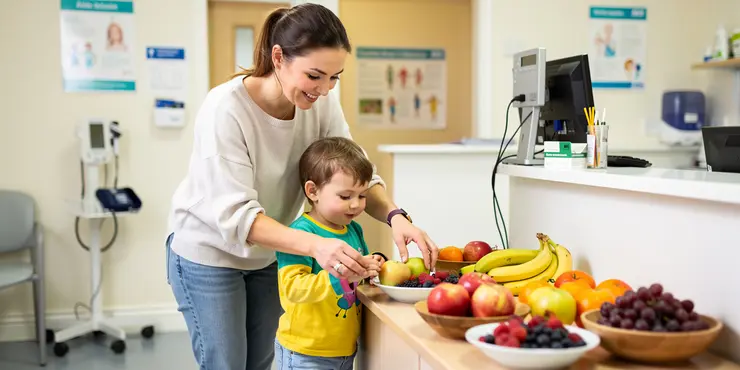
What are Healthy Start vouchers in the UK?
Relevance: 24%
-
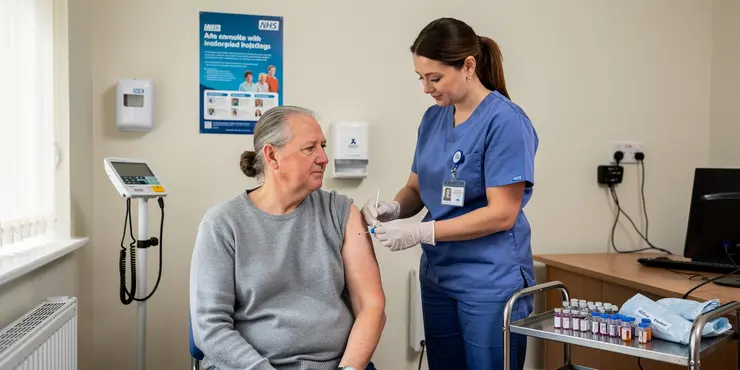
Is the flu jab necessary for healthy individuals?
Relevance: 24%
-
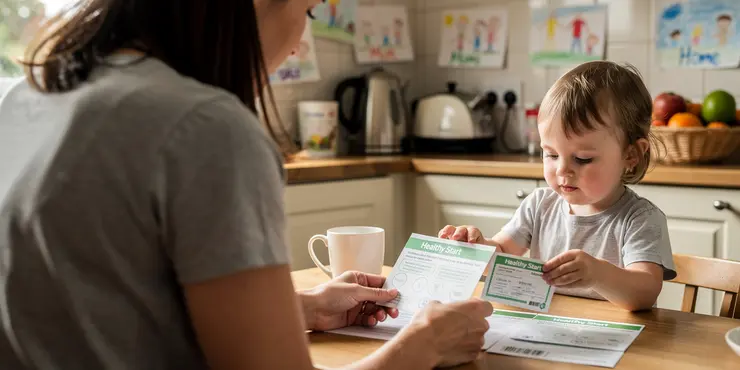
Who is eligible for Healthy Start vouchers?
Relevance: 24%
-
What types of fats are healthy to consume?
Relevance: 23%
-
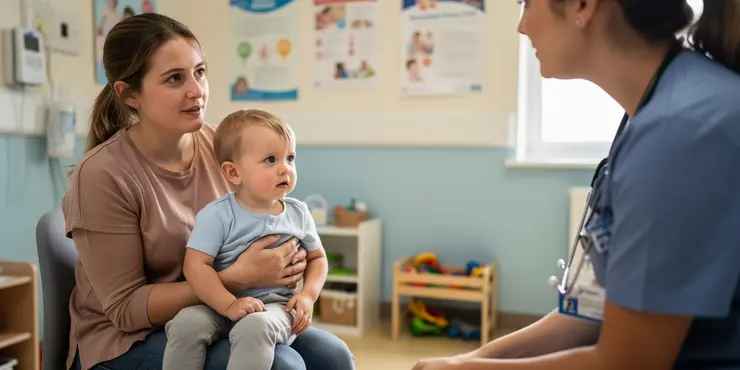
Who is eligible for Healthy Start vouchers?
Relevance: 23%
-

What can I buy with Healthy Start vouchers?
Relevance: 23%
-
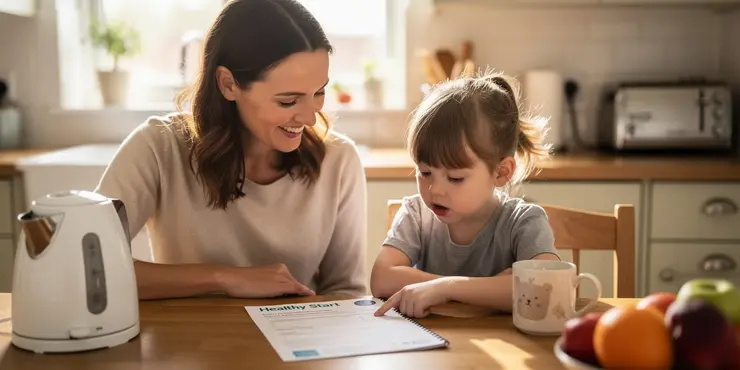
How can I apply for Healthy Start vouchers?
Relevance: 23%
-
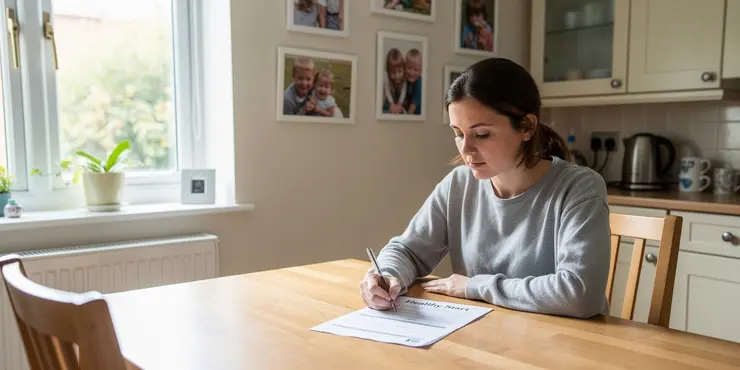
How can I apply for Healthy Start vouchers?
Relevance: 23%
-
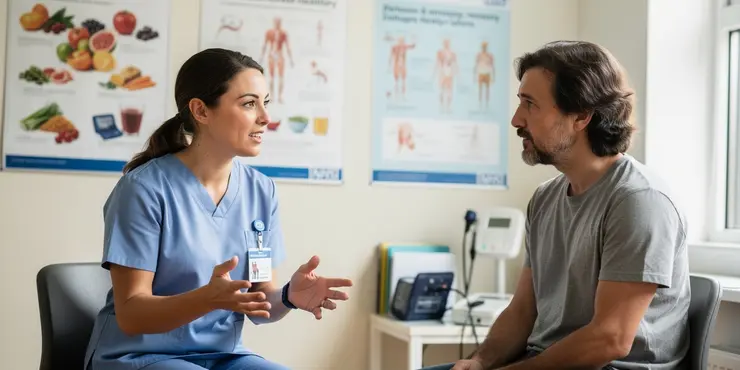
Top 10 Tips for Healthy Eating
Relevance: 23%
-
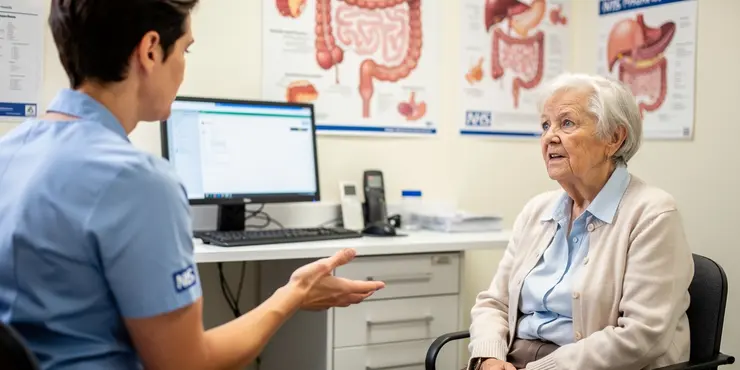
Can maintaining a healthy gut help slow down aging?
Relevance: 23%
-
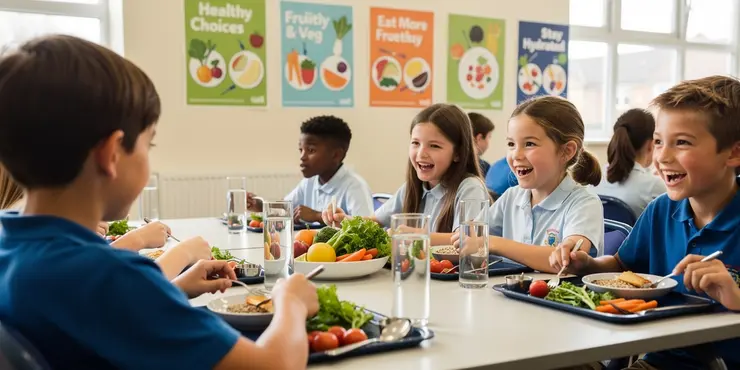
Is there a focus on healthy eating in UK school meals?
Relevance: 22%
-

Building a Healthy Home Environment
Relevance: 21%
-
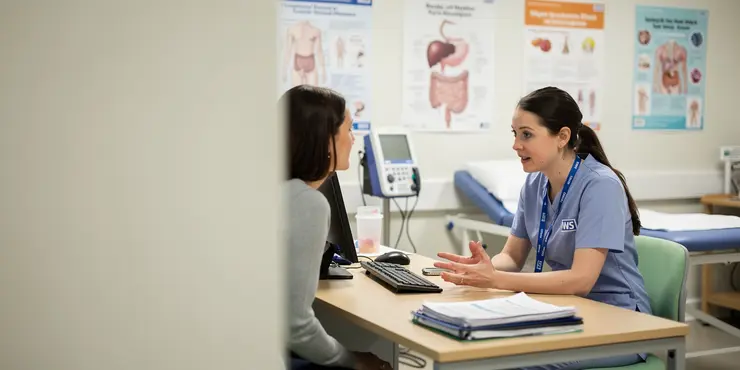
What foods support a healthy gut microbiome?
Relevance: 21%
-
How can I ensure I'm getting enough healthy fats each day?
Relevance: 20%
-
Can orange juice be part of a healthy diet?
Relevance: 20%
-
Is sunflower oil a healthy cooking oil?
Relevance: 20%
-

Should I get the winter flu jab if I am otherwise healthy?
Relevance: 19%
-
How can I tell the difference between normal teenage secrecy and potential grooming?
Relevance: 19%
-
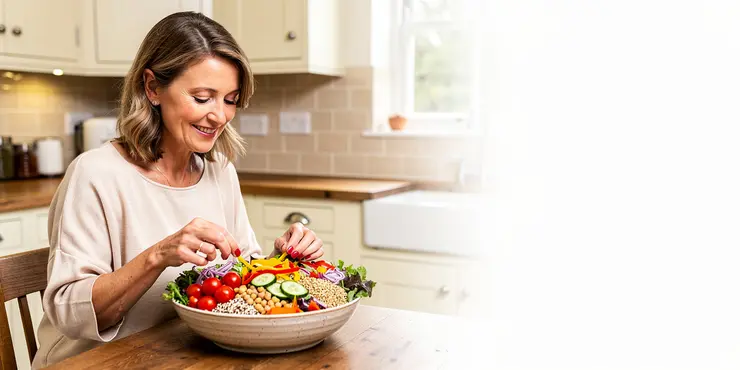
What lifestyle changes can improve gut health and support healthy aging?
Relevance: 16%
-

What is the role of parental monitoring in children's screen time and sleep?
Relevance: 14%
-

How does screen time before bed specifically affect adolescents?
Relevance: 13%
-

What is the purpose of providing school meals in the UK?
Relevance: 13%
-
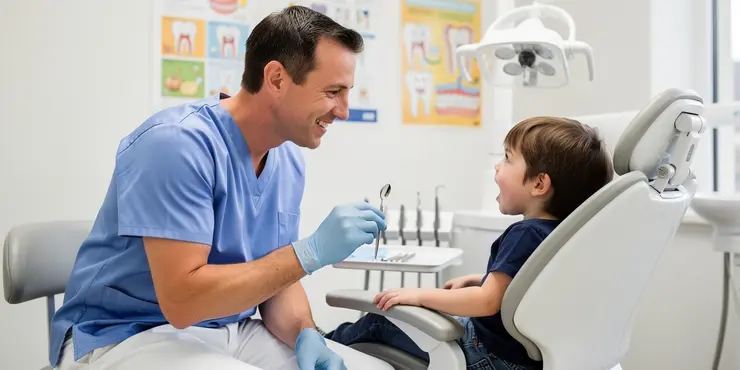
Dental Health: Tips for All Ages
Relevance: 13%
-
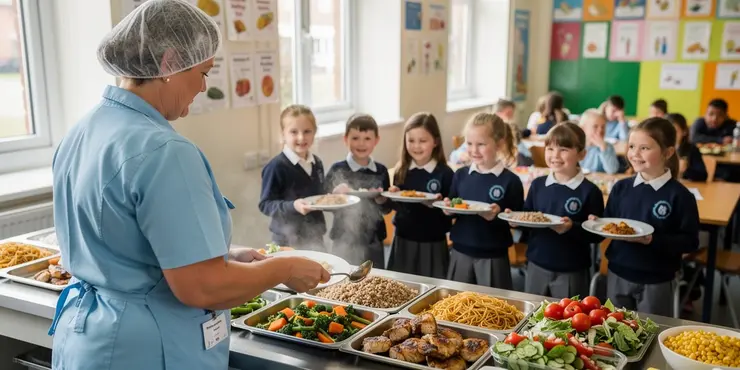
How are school meals provided in the UK?
Relevance: 12%
-
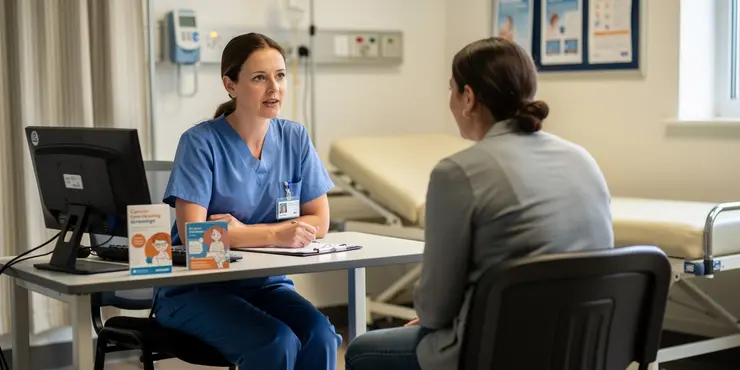
Can lifestyle changes impact the efficacy of cancer screening?
Relevance: 11%
-
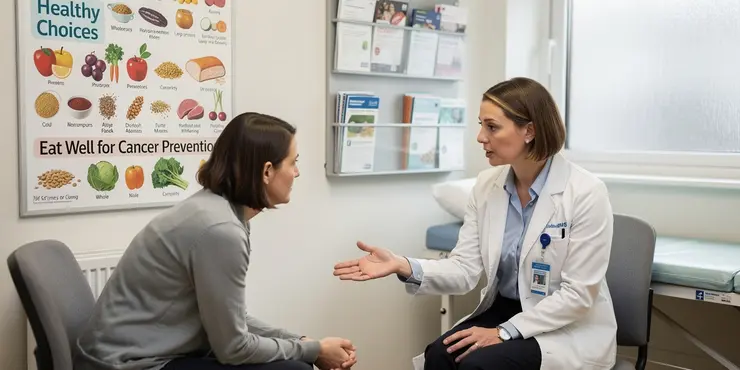
Can lifestyle changes help reduce bowel cancer risk?
Relevance: 11%
-

Calls for Better School Lunch Standards After Nationwide Survey
Relevance: 11%
-
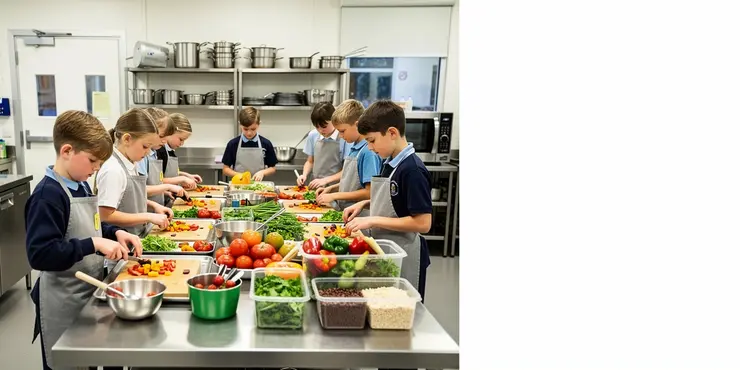
Are there educational components to the school meal program?
Relevance: 11%
-
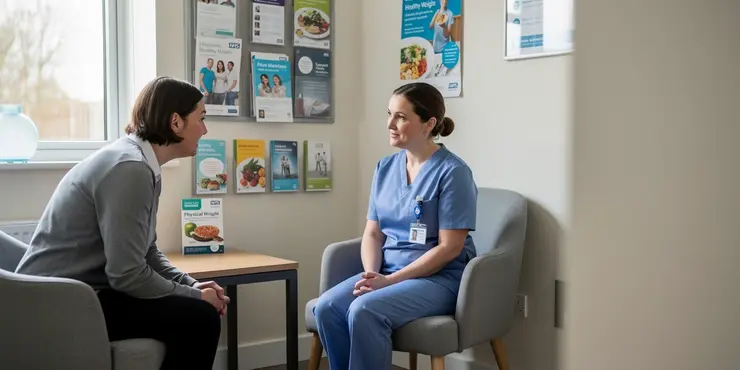
Do lifestyle changes need to accompany Ozempic for weight loss?
Relevance: 11%
-
Is it possible to recover from an eating disorder?
Relevance: 11%
-
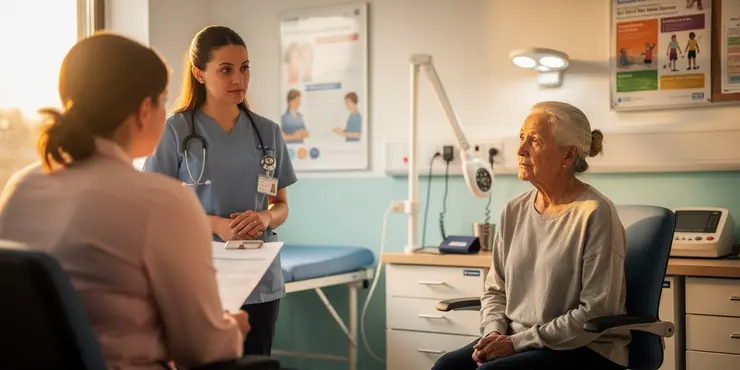
Bowel cancer - Symptoms and signs to look out for
Relevance: 11%
Healthy Habits for Teens
Balanced Diet
Adopting a balanced diet is crucial for teens who are in a vital stage of growth and development. Opt for various fruits and vegetables, lean proteins, whole grains, and dairy products to ensure you're getting all essential nutrients. It's advisable to limit sugar, salt, and saturated fats. In the UK, Public Health England provides the Eatwell Guide which offers useful dietary recommendations.
Regular Exercise
Physical activity is another key aspect of a healthy lifestyle for teens. Aim for at least 60 minutes of moderate to vigorous physical activity daily. This could include sports, biking, dancing, or even brisk walking. Schools and community centres across the UK usually offer various exercise programmes and sports clubs that can help teens stay active while also socialising.
Quality Sleep
Teenagers need about 8-10 hours of sleep per night for optimal health and performance at school. Prioritising sleep can significantly impact mental and physical well-being. Establish a regular sleep schedule and create a comfortable sleeping environment by keeping your room dark and quiet. Avoid screens at least an hour before bed to ensure better quality sleep.
Mental Health
Looking after mental health is equally important. The pressures of school, social life, and family can sometimes feel overwhelming. Teens should practice mindfulness and relaxation techniques, and it's vital to talk openly with trusted adults about any concerns. In the UK, organisations like Childline and YoungMinds offer resources and support for teenagers facing mental health challenges.
Avoiding Harmful Substances
Steering clear of harmful substances, such as tobacco, alcohol, and drugs, is essential for maintaining health. Educating yourself on the harmful effects these substances can have on your body and mind can be a deterrent. The National Health Service (NHS) provides ample resources to help teens understand and avoid the dangers of substance abuse.
Healthy Relationships
Fostering healthy relationships with family, friends, and peers can greatly contribute to overall well-being. Respect, trust, and open communication form the foundation of strong, supportive relationships. Being mindful of social dynamics and seeking help if relationships become toxic can prevent emotional strain and enhance your quality of life.
By incorporating these healthy habits into your daily routine, you can significantly improve your overall well-being. Making small, positive changes today can lead to a healthier, happier tomorrow.
Healthy Habits for Teens
Balanced Diet
Eating healthy foods is very important for teens. You need different kinds of foods to grow strong and stay healthy. Eat fruits, vegetables, lean meats, grains, and dairy like milk and cheese. Try to eat less sugar, salt, and fatty foods. In the UK, there's a guide called the Eatwell Guide to help you make good food choices.
Regular Exercise
Exercise helps you stay fit and healthy. Try to move your body for at least 60 minutes every day. This can be playing sports, biking, dancing, or walking fast. Schools and community centres in the UK have many activities and sports clubs to join. Exercising is also a great way to make friends.
Quality Sleep
Teenagers need 8-10 hours of sleep each night. Getting enough sleep helps you feel good and do well in school. Go to bed at the same time every night and make sure your room is dark and quiet. Turn off screens, like TVs and phones, one hour before going to bed to sleep better.
Mental Health
Taking care of your mind is just as important as taking care of your body. School and family can sometimes feel tough. It's important to do relaxing activities and talk to adults you trust if you feel worried. In the UK, Childline and YoungMinds can help if you're having hard times with your feelings.
Avoiding Harmful Substances
Stay away from cigarettes, alcohol, and drugs. These can hurt your body and mind. Learn why they are bad for you. The NHS provides information to help you understand the dangers of these substances.
Healthy Relationships
Good relationships with your family and friends make life better. You should treat others with respect and talk openly. If someone makes you feel bad, ask for help. Healthy relationships make you happier.
By adding these healthy habits to your life, you can feel better and be happier. Start making small, positive changes now for a better future.
Frequently Asked Questions
What is a balanced diet and why is it important for teens?
A balanced diet includes a variety of fruits, vegetables, whole grains, proteins, and dairy. It's essential for teens because it supports growth, boosts energy levels, and can prevent health problems.
How many hours of sleep do teenagers need?
Teenagers need about 8 to 10 hours of sleep each night for optimal health and functioning.
What are some effective ways for teens to manage stress?
Effective stress management techniques include regular physical activity, talking to friends or family, practicing mindfulness or meditation, and keeping a journal.
How much physical activity should a teenager get daily?
Teens should aim for at least 60 minutes of moderate to vigorous physical activity every day to maintain good health.
Why should teens limit their screen time?
Excessive screen time can lead to problems like poor sleep, decreased physical activity, and mental health issues. It's recommended to limit recreational screen time to no more than 2 hours per day.
What are some healthy snack options for teens?
Healthy snack options include fruit, yogurt, nuts, whole grain crackers, and vegetables with hummus.
How can teens build a healthy self-esteem?
Building healthy self-esteem involves setting realistic goals, celebrating achievements, positive self-talk, surrounding oneself with supportive people, and not comparing oneself to others.
Why is hydration important and how much water should teens drink?
Staying hydrated is essential for overall health as it helps with digestion, energy levels, and concentration. Teens should aim to drink about 6-8 glasses of water a day.
What are the benefits of eating breakfast for teens?
Eating breakfast can improve concentration, performance at school, and provide energy for the day. A healthy breakfast includes protein, whole grains, and fruits or vegetables.
How can teens develop a healthy relationship with food?
Teens can develop a healthy relationship with food by listening to their hunger and fullness cues, avoiding dieting trends, and enjoying a variety of foods in moderation.
Why should teens avoid alcohol and drugs?
Avoiding alcohol and drugs is crucial as they can impair brain development, increase the risk of addiction, and lead to poor decision-making and health consequences.
How important is regular exercise for mental health?
Regular exercise is very important for mental health as it can help reduce symptoms of depression and anxiety, improve mood, and boost overall emotional wellbeing.
What are the benefits of maintaining good hygiene habits?
Good hygiene habits, such as regular handwashing, dental care, and showering, can prevent illnesses, improve self-confidence, and promote overall health.
How can teens make better food choices at school?
Making better food choices at school involves opting for meals that include fruits, vegetables, whole grains, and lean proteins while avoiding sugary drinks and snacks.
What should teens do if they are struggling with mental health issues?
If teens are struggling with mental health issues, they should talk to a trusted adult, seek help from a counsellor or mental health professional, and stay connected with supportive friends and family.
What is a balanced diet and why is it important for teenagers?
A balanced diet means eating different kinds of food to stay healthy and strong.
It is important for teenagers because their bodies are growing.
Eating a mix of fruits, vegetables, grains, proteins, and dairy helps them have energy and feel good.
Tools to help:
- Use simple food charts to see what to eat.
- Try to eat at the same times each day.
- Get help from family or teachers to make meal plans.
A good diet has many different foods. You should eat fruits, vegetables, whole grains like bread or cereal, proteins like meat or beans, and dairy like milk or cheese. This is very important for teens. It helps them grow, gives them energy, and keeps them healthy.
How much sleep do teenagers need?
Teenagers need a lot of sleep to feel good. They need about 8 to 10 hours of sleep every night. Sleeping well helps them do better in school, feel better, and grow strong.
Here are some tips to help teenagers sleep:
- Go to bed at the same time every night.
- Turn off screens, like phones and tablets, an hour before bed.
- Keep their room quiet and dark.
- Relax by reading a book or listening to calming music before sleeping.
Teenagers need about 8 to 10 hours of sleep every night to stay healthy and work well.
How can teens handle stress well?
Teens can feel a lot of stress. Here are some simple ways for teens to feel better:
- Take deep breaths. Breathe in slowly and breathe out slowly.
- Talk to someone you trust. This could be a friend or a family member.
- Write down your feelings in a notebook. This can help you understand your thoughts.
- Do some exercise. Even a short walk can help you feel better.
- Listen to music you enjoy. Music can help you relax.
- Make sure to get plenty of sleep at night.
You can also use apps or videos on the internet to help you relax.
Here are some good ways to help manage stress:
- Exercise: Move your body regularly, like going for walks or playing sports.
- Talk to someone: Share your feelings with friends or family.
- Mindfulness: Focus on the present moment. You can try simple meditation.
- Write it down: Keep a diary or journal to write about your thoughts and feelings.
These activities can make you feel better. Using apps that guide meditation or listening to calming music can also help.
How much exercise should a teenager do every day?
Teenagers should try to be active every day. This means moving your body a lot. Here is what you can do:
- Do at least 1 hour of exercise each day.
- You can run, jump, or play sports.
- Find things you like to do, like dancing or riding a bike.
Remember, it's important to move and have fun!
If you need help, ask a teacher or a parent for ideas.
Teens should try to do at least 60 minutes of exercise every day. This helps them stay healthy.
Why should teens spend less time on screens?
Teens should not use screens too much. Looking at screens for a long time can be bad for their health.
Here are some reasons why:
- Too much screen time can make eyes hurt and tired.
- It can stop them from sleeping well at night.
- They might miss out on fun things to do with friends or family.
- Spending time outside is good for feeling happy and healthy.
Some tools to help limit screen time are:
- Timers or alarms on devices to remind them to take breaks.
- Apps that track how long they use screens each day.
Spending too much time on screens, like TVs or tablets, can cause problems. You might not sleep well, or you might not want to play outside. It can also make you feel sad or worried. Try to use screens for fun for only 2 hours a day.
What snacks are good and healthy for teenagers?
Here are some simple and tasty snacks:
- Fruit: Apples, bananas, or berries are sweet and yummy.
- Veggies: Carrot sticks or cucumber slices are crunchy and fresh.
- Nuts: Almonds or walnuts are good for a little crunch.
- Yogurt: Try plain yogurt with a bit of honey or fruit.
- Cheese: A piece of cheese can be a quick and tasty snack.
Support tools:
- Use a picture chart to show healthy snack choices.
- Keep healthy snacks where they are easy to find.
Here are some good snacks for you to try:
- Fruits like apples or bananas
- Yogurt
- Nuts like peanuts or almonds
- Whole grain crackers
- Veggies like carrots with hummus
These snacks are good for you!
If reading is hard, you can use:
- Pictures of the snacks
- Audio books or apps to help read
- Break the text into small parts
How can teenagers feel good about themselves?
Teenagers can feel good about themselves by doing a few simple things:
- Think about what makes you special and what you are good at.
- Spend time with friends and family who make you feel happy.
- Try new activities or hobbies to learn new things.
- Be kind to yourself when things don't go right.
- Ask for help if you feel sad or worried.
Remember, feeling good about yourself can take time, and that's okay.
To feel good about yourself, try these things:
- Set goals that you can reach.
- Be happy when you do something well.
- Say kind things to yourself.
- Spend time with people who make you feel good.
- Do not compare yourself to other people.
Why is drinking water important and how much water should teenagers have?
Water is very important for your body. It helps you stay healthy and feel good.
Teenagers should drink plenty of water every day to stay fit and strong.
Here are some tips to help you drink enough water:
- Carry a water bottle with you.
- Drink water with every meal.
- Set reminders to drink water during the day.
Drinking water is very important for staying healthy. It helps your tummy feel good, gives you energy, and helps you think better. Kids and teens should try to drink about 6 to 8 glasses of water every day.
Why is breakfast good for teenagers?
Eating breakfast helps teenagers in many ways:
- Energy: Breakfast gives you energy to start your day.
- Concentration: It helps you focus better at school.
- Health: Eating in the morning is good for your health.
- Hunger: It stops you from feeling hungry later.
Helpful tip: Try using a reminder on your phone to remember to eat breakfast every morning!
Eating breakfast helps you think better, do well in school, and gives you energy for the day. A good breakfast has foods like eggs, cereal, and fruits or vegetables.
How can teens have a good relationship with food?
Eating well is important. Here are some tips for teens:
- Eat different types of food. Try fruits, vegetables, meat, and grains.
- Listen to your body. Eat when you are hungry and stop when you are full.
- Enjoy your meals. Eat slowly and taste your food.
- Avoid calling foods "bad." All foods can be part of a healthy diet.
- Drink plenty of water. Water helps you feel good.
If you need help, talk to an adult you trust, like a parent or teacher. You can also use helpful apps or websites to learn more about eating well.
Young people can have a good relationship with food by doing these things:
- Pay attention to when they feel hungry or full.
- Stay away from diet fads or trends.
- Eat different types of foods, but not too much.
Using tools like food journals or apps can help keep track of feelings and food.
Why should teenagers stay away from alcohol and drugs?
Alcohol and drugs can be harmful for young people. They can affect your brain, which is still growing.
Drinking alcohol or taking drugs can make it hard to think clearly. It can also make you feel sad or angry.
These things can cause problems at school or with friends and family.
There are tools that can help you make good choices:
- Learn more about what alcohol and drugs do to your body.
- Talk to a trusted adult if you have questions or worries.
- Find fun activities that make you feel good without alcohol or drugs, like sports or hobbies.
It is very important to stay away from alcohol and drugs. They can harm your brain as it grows, make you want more, and cause bad choices and health problems.
Why is regular exercise good for feeling happy?
Exercise helps you feel happier and less worried. Try to move your body every day. You can walk, dance, or play outside. Find something fun and do it often.
It helps to set a routine. Do your favorite exercise at the same time every day.
If it's hard to start, ask a friend or family member to join you. They can make it more fun.
Remember, moving your body helps your mind feel better too!
Doing exercise is really good for your mind. It can help you feel less sad or worried. Exercise can make you feel happier and better overall.
Why is it important to keep clean?
It is good to keep clean because:
- You stay healthy and don’t get sick.
- You feel good and look nice.
- You don’t spread germs to others.
Here are some ways to help you keep clean:
- Use soap and water to wash your hands.
- Brush your teeth every day.
- Take a bath or shower regularly.
Keeping clean is important. Washing your hands often, brushing your teeth, and taking showers help you stay healthy. These habits stop you from getting sick and make you feel good about yourself.
How can teens pick better foods at school?
Here are some tips to help teens eat well at school:
- Eat fruits and vegetables: Try to have fruits and vegetables with every meal.
- Choose water: Drink water instead of soda or sugary drinks.
- Pick whole grains: Look for whole grain bread and pasta when you can.
- Eat balanced meals: Try to have a mix of protein, carbs, and healthy fats.
- Snack wisely: Choose healthy snacks like yogurt, nuts, or fruit.
Supportive tools:
- Food diary: Write down what you eat to keep track of meals.
- Meal plan: Plan your meals for the week so you can make healthy choices.
- Talk to friends: Share ideas with friends about healthy foods you like.
To eat better at school, pick meals with fruits, veggies, whole grains, and lean meats. Try not to have sugary drinks and snacks.
What can teens do if they feel sad or worried?
If you feel sad or worried a lot, it is important to tell someone. Here are some steps you can take:
- Talk to an adult: Tell a parent, teacher, or adult you trust. They can help you.
- See a doctor: A doctor can find out what is wrong and help you feel better.
- Share with friends: It's okay to tell friends how you feel. They can listen and support you.
- Write it down: Sometimes writing about how you feel can help. Use a diary or notebook.
- Try deep breathing: When you feel upset, take slow, deep breaths to calm down.
Remember, you are not alone, and there are people who want to help you feel better.
If teenagers are having a hard time with their feelings, they should talk to an adult they trust. They can also get help from a counselor or a person who knows about mental health. It is important to stay close to good friends and family who can help.
Useful Links
This website offers general information and is not a substitute for professional advice.
Always seek guidance from qualified professionals.
If you have any medical concerns or need urgent help, contact a healthcare professional or emergency services immediately.
Some of this content was generated with AI assistance. We’ve done our best to keep it accurate, helpful, and human-friendly.
- Ergsy carfully checks the information in the videos we provide here.
- Videos shown by Youtube after a video has completed, have NOT been reviewed by ERGSY.
- To view, click the arrow in centre of video.
- Most of the videos you find here will have subtitles and/or closed captions available.
- You may need to turn these on, and choose your preferred language.
- Go to the video you'd like to watch.
- If closed captions (CC) are available, settings will be visible on the bottom right of the video player.
- To turn on Captions, click settings .
- To turn off Captions, click settings again.
More Items From Ergsy search
-

Healthy Habits for Teens
Relevance: 100%
-
Can children and teens have health-related anxiety?
Relevance: 39%
-

Healthy Family Lifestyle Tips Post-Pandemic
Relevance: 28%
-

Are UK's Post-Pandemic Work Habits Harming Mental Wellbeing?
Relevance: 28%
-

What are Healthy Start vouchers?
Relevance: 28%
-

Are UK's Post-Pandemic Work Habits Harming Mental Wellbeing?
Relevance: 28%
-

How can technology be used to monitor the driving habits of seniors?
Relevance: 27%
-

Walking to Work: A Simple Habit That Could Transform Your Lifestyle
Relevance: 25%
-

What are Healthy Start vouchers?
Relevance: 25%
-

What are Healthy Start vouchers in the UK?
Relevance: 24%
-

Is the flu jab necessary for healthy individuals?
Relevance: 24%
-

Who is eligible for Healthy Start vouchers?
Relevance: 24%
-
What types of fats are healthy to consume?
Relevance: 23%
-

Who is eligible for Healthy Start vouchers?
Relevance: 23%
-

What can I buy with Healthy Start vouchers?
Relevance: 23%
-

How can I apply for Healthy Start vouchers?
Relevance: 23%
-

How can I apply for Healthy Start vouchers?
Relevance: 23%
-

Top 10 Tips for Healthy Eating
Relevance: 23%
-

Can maintaining a healthy gut help slow down aging?
Relevance: 23%
-

Is there a focus on healthy eating in UK school meals?
Relevance: 22%
-

Building a Healthy Home Environment
Relevance: 21%
-

What foods support a healthy gut microbiome?
Relevance: 21%
-
How can I ensure I'm getting enough healthy fats each day?
Relevance: 20%
-
Can orange juice be part of a healthy diet?
Relevance: 20%
-
Is sunflower oil a healthy cooking oil?
Relevance: 20%
-

Should I get the winter flu jab if I am otherwise healthy?
Relevance: 19%
-
How can I tell the difference between normal teenage secrecy and potential grooming?
Relevance: 19%
-

What lifestyle changes can improve gut health and support healthy aging?
Relevance: 16%
-

What is the role of parental monitoring in children's screen time and sleep?
Relevance: 14%
-

How does screen time before bed specifically affect adolescents?
Relevance: 13%
-

What is the purpose of providing school meals in the UK?
Relevance: 13%
-

Dental Health: Tips for All Ages
Relevance: 13%
-

How are school meals provided in the UK?
Relevance: 12%
-

Can lifestyle changes impact the efficacy of cancer screening?
Relevance: 11%
-

Can lifestyle changes help reduce bowel cancer risk?
Relevance: 11%
-

Calls for Better School Lunch Standards After Nationwide Survey
Relevance: 11%
-

Are there educational components to the school meal program?
Relevance: 11%
-

Do lifestyle changes need to accompany Ozempic for weight loss?
Relevance: 11%
-
Is it possible to recover from an eating disorder?
Relevance: 11%
-

Bowel cancer - Symptoms and signs to look out for
Relevance: 11%


